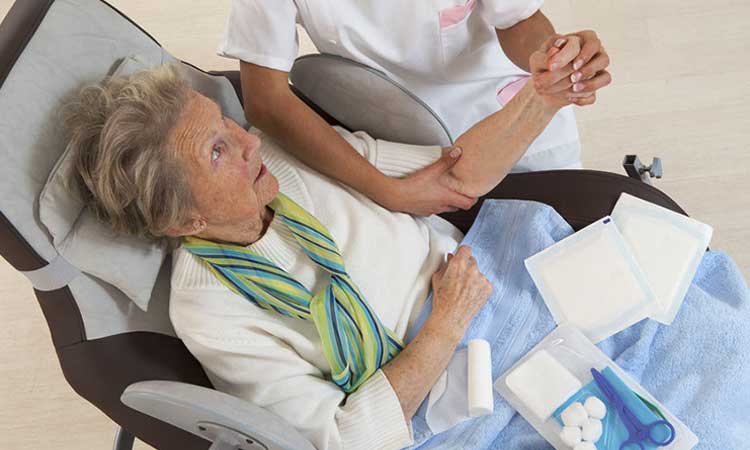 What is home health care?
What is home health care?
Home health care is the process of providing health care to people in their homes. This could include post-trauma care, post-operative care and elder care, and may range from supporting daily living activities to complete at-home ICU setup. In this article we will restrict ourselves to home healthcare for elders.
The need for home health care
Of late, India has woken up to the need for home health care.
Firstly, a burgeoning population is putting a lot of pressure on hospitals to treat and discharge patients as soon as possible. This is extending the post-hospitalization and recovery period where people who have come back home continue to require a fair amount of health care in order to fully recover.
Secondly, the elder population in India is growing steadily and small families are finding it hard to look after the elders at home without professional help. India today is home to over 120 Million people above the age of 60 and a good 10% require some health care and support at home.
These two together are creating a new market for professional home healthcare services.
Introduction to professional home healthcare services in India
“Home healthcare services” is still a nascent industry in India. It is also a very challenging space because the requirements and conditions in India are very different from those in developed nations. Which means that we do not have a successful model to emulate or follow.
Currently, there is no regulatory body or umbrella organization for the home healthcare sector that could regulate and set up the rules of engagement. So, we are pretty much bordering on what can be called an unorganized, unregulated sector.
Also, most home healthcare services organizations are independent organizations not affiliated to any hospital. This means that, more often than not, the hospital is not aware of what specific services the home healthcare agency is providing for their discharged patient and whether it is in line with what they – the hospital – has recommended. In fact, most often, the home healthcare services are provided without any supervision or monitoring by a doctor. This means all the due diligence in the selection process and the supervision of their work with the patient rest solely on the shoulders of family members of the patient.
This is why it is essential to learn how to select the right service partner for you.
- Collect the list of service providers operating in your area. These could be individuals (freelancers), general manpower agencies, local hospitals’ outreach business arm, or dedicated home healthcare providers.
- Select a service partner who meets your current requirements and be prepared to switch to a different partner if the needs become more complicated (or less complicated) as the case may be. This will give you some flexibility in managing costs.
- If you are selecting a freelancer or individual, there are both advantages and disadvantages. The advantages and disadvantages are
- (A) The cost will be low.
- (A) If you have the space, you can find someone who is a live-in service agent. This will prevent sudden “no-shows” and unexpected disappearances.
- (D) You will have to do all the due diligence starting from the security aspect onwards. Is this person reliable? Where do they live? Do we need to get them to get a police clearance? Should I get copies of their important documents? These are all some of the questions you will need to grapple with.
- You will be responsible for their personal needs in terms of food, security and shelter (in the case of a live-in).
- When they leave for whatever reason, either permanently or for a short/long leave of absence, finding a replacement can be challenging.
- If you are selecting a general manpower agency, it should be only for a companion or a nursing assistant (untrained helper). You should not rely on a general manpower agency for professionally qualified personnel such as nurses, physiotherapists, occupational therapists or doctors. The advantages of going to a manpower agency over an individual is that you can expect the manpower agency to do some of the due diligence (though we would strongly recommend that you do your own due diligence). Additionally, finding a replacement for a truant caretaker may be easier. On the down side, expect “no-shows” and everyone involved, from the agency to the actual personnel, to be “unreachable” at such times.
- If your local hospital provides home healthcare services also, that is ideal. Since all the services are provided by the same organization, one can hope that they all work in unison and provide you with the right level of support whatever your needs are.
- Finally, there are a number of independent professional home healthcare agencies that have come up in India recently. They are expensive, but they provide a wide range of services from house calls by doctors to 24×7 intensive care.
Bottom Line
The bottom line in all this is that the quality of service received is, at the end of the day, dependent on the quality of the individual deputed to provide that service. As a fledgling industry, training of personnel for home health care is still not very advanced and you can expect a lot of rough edges. Be prepared to spend time on training the deputed personnel on matters such as hygiene, empathy, kindness, caring and pleasant bedside manners. You will also have a tough time taking them away from their phones!
All the best!
 What is home health care?
What is home health care? Though this may sound pithy, it is true that old people are like children. And sometimes, the older they get, the more child-like and/or childish they become. While this can be endearing at times, it can also be very frustrating and annoying. Not to mention, difficult to manage.
Though this may sound pithy, it is true that old people are like children. And sometimes, the older they get, the more child-like and/or childish they become. While this can be endearing at times, it can also be very frustrating and annoying. Not to mention, difficult to manage.